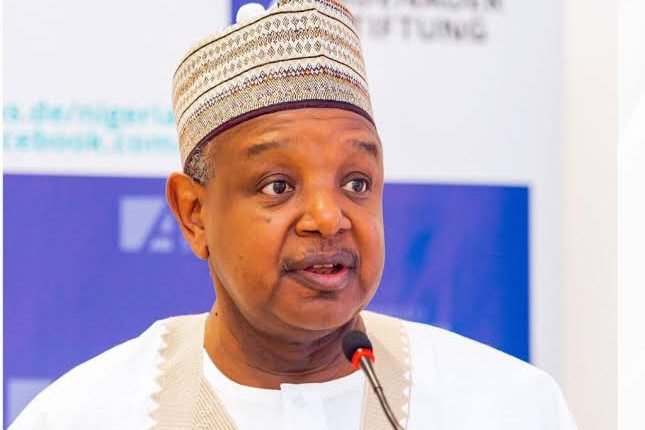The Federal Government of Nigeria is poised to allocate N3 trillion to implement a new minimum wage and pay pensions and gratuities, as revealed by the Minister of Budget and Economic Planning, Atiku Bagudu.
This announcement was made during a meeting with the Senate Committee on Appropriations, chaired by Olamilekan Adeola.
During the meeting, Bagudu presented the overarching principles of the newly amended 2024 budget. President Bola Tinubu recently approved a new minimum wage of N70,000 for Nigerian workers following discussions with the leadership of the Nigeria Labour Congress and the Trade Union Congress. Additionally, Tinubu committed to reviewing the national minimum wage law every three years.
Earlier, the National Assembly had passed an amendment to the 2024 budget, increasing it by N6.2 trillion, thereby raising the total budget to N33.7 trillion. In a letter to the Senate, read by Senate President Godswill Akpabio, President Tinubu requested the withdrawal of N3.2 trillion from the Consolidated Revenue Fund for capital expenditure, alongside an additional N3 trillion for recurrent expenditure for the year ending December 31, 2024.
The Senate responded swiftly, granting the requests first and second readings as executive bills. It tasked its Appropriations and Finance Committees with providing further legislative input and reporting back within a week. Senate Leader Opeyemi Bamidele, in his lead debate on the Appropriation Amendment Bill, emphasized the amendment’s goal to authorize the release of funds for capital infrastructure development, education, healthcare, and public welfare initiatives.
Senators Adamu Aliero and Adams Oshiomhole both supported the bills. Aliero underscored the necessity of funding the new minimum wage, while Oshiomhole highlighted the need to legally back the increased personnel expenditure to avoid financial deficits.
During the Friday meeting with the Senate Committee on Appropriations, Minister Bagudu assured that the new budget additions would be financed from reserved profits rather than loans. He noted that priority would be given to projects facilitating investments and addressing emergencies, with other projects to follow in subsequent phases. Bagudu attributed recent challenges to historical underinvestment in infrastructure and praised President Tinubu’s efforts to address this deficit.
Bagudu also provided a sectoral overview of the budget, detailing the N3.2 trillion allocation for Renewed Hope Infrastructure Projects and the N3 trillion increase for the recurrent budget. Senator Adeola confirmed the government’s ability to finance the 2024 budget and called for a detailed breakdown of the N6.2 trillion approval. This breakdown is expected to be debated by both chambers of the National Assembly.
Senate Spokesperson Yemi Adaramodu added that ministries, departments, and agencies would defend their budget allocations before relevant Senate committees. The recurrent budget of N3 trillion will cover the new minimum wage, pensions, and gratuities, while the N3.2 trillion capital component will support ongoing road projects, including state and federal routes, coastal roads, the Sokoto-Badagry road, railway construction, and dam irrigation projects.

